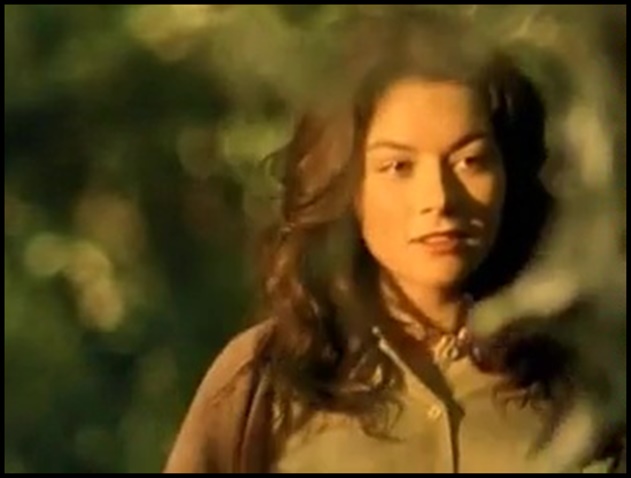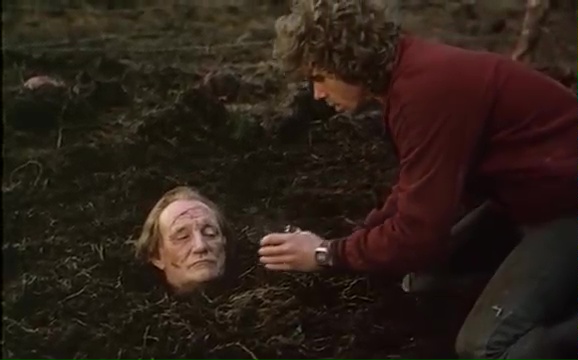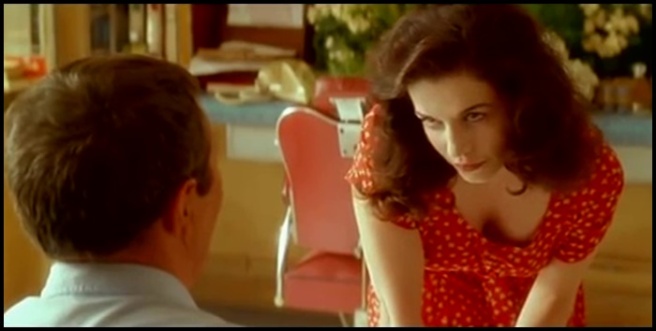
This will be the third time I’ve watched this film.
The previous 2 times I found it irritating. Something to do with how such a gorgeous woman (the hairdresser, Mathilde played by Anna Galiena) could be so inexplicably enamoured with this twit of a twat (her husband Antoine) played by Jean Rochefort.
I’ll see how I get on in this third, and probably, final, watch. See if I can feel less irritated, and more amused, or even charmed, by Rocheforts silly willyness.
*
‘The more they resist the sweeter the surrender’ is fathers advice to son.
Well, gorgeous hairdresser Mathilde doesn’t offer much, or any, resistance. She’s accepting Antoines proposal of marriage almost immediately. She’s far too willing, too unseemingly eager, to be this creepy old mans wet dream. What is wrong with the girl?
He’s imagining her nipples rubbing against her blouse, and, aroused, pointed at his neck.
And now he starts doing his daft dancing. Actually, change daft to stupid. Is it mean to be amusing? Its embarrassing.
More embarrassment. He’s now pawing and squeezing and mouthing at the lovely young lady’s breasts like a dirty old lech. And she’s not stopping him – she’s letting him. What is wrong with the girl?!
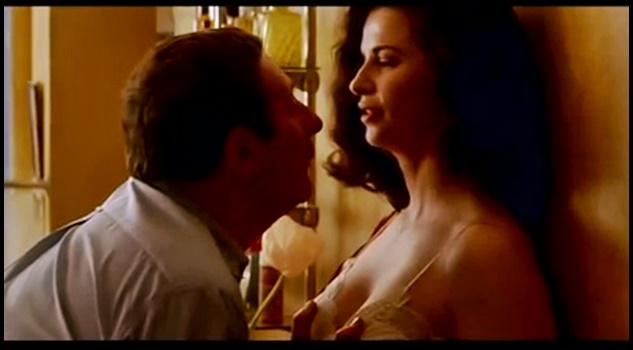
Now there’s more of his imbecilic ‘arabic’ improvised dancing. That he’s meant to be mesmerizing, or bambooziling, a kid with. Please stop! It’s not funny. He hasn’t got a single erotic bone in his body has Rochefort. This dancing proves it.
And now look what the dirty old bugger is up to.
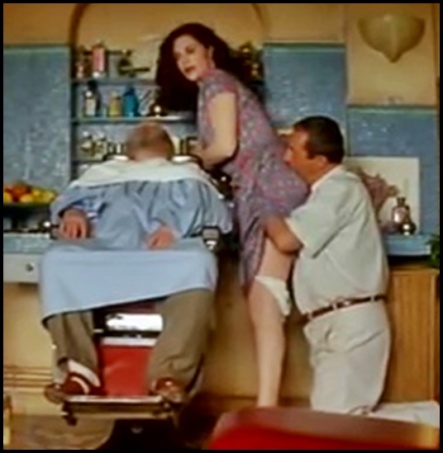
That feels as pervy as it looks. I’m not turned on. And I can’t believe she’s turned on either. Dancing his floaty finger arabesques around her fanny. Stop it will you – it tickles!.
She worries that he might stop loving her, stop finding her utterly desirable. Eh? It’s the other way round surely. In fact, if I were you Mathilde I’d dump the dirty old perv immediately.
But, no, she’s still worrying about losing her allure, her failure to continue to be drop dead gorgeous. And after one final peak of climatic ecstasy she runs of and, er, kills herself?!
I told you there was something wrong with this girl.
So that’s that. The Hairdressers Husband, and to be honest, also the Hairdresser herself, are just as irritating and embarrassing as they always were.
I’m realising that my irritation is with both the leads. They’re miscast and mismatched. Rochefort was 60 and Galiena 31 when the film was made. The 30 year age gap is glaringly obvious and incongruous. Rochefort comes across as a pathetic sleazy old lech; his overly controlling possessive leering and duff dancing do not engage my amusement or my sympathy.
Therefore I’d ditch Rochefort and replace with an actor conveying charm, charisma, and uncringeworthy dance moves.
And I’d do something about Mathildes character – i.e give her one. Instead of merely being the vacuous vessel of fetishistic fantasy and objectification, sat there smiling emptily (which I suppose most hairdressers could be prone to do) with not a single interesting thought in her hollow head. I’d animate her more subjectively from within.
No, on second thoughts, what I’d actually do is just scrap this film altogether, and start again from scratch.
Dir: Patrice Leconte, France
3/10




